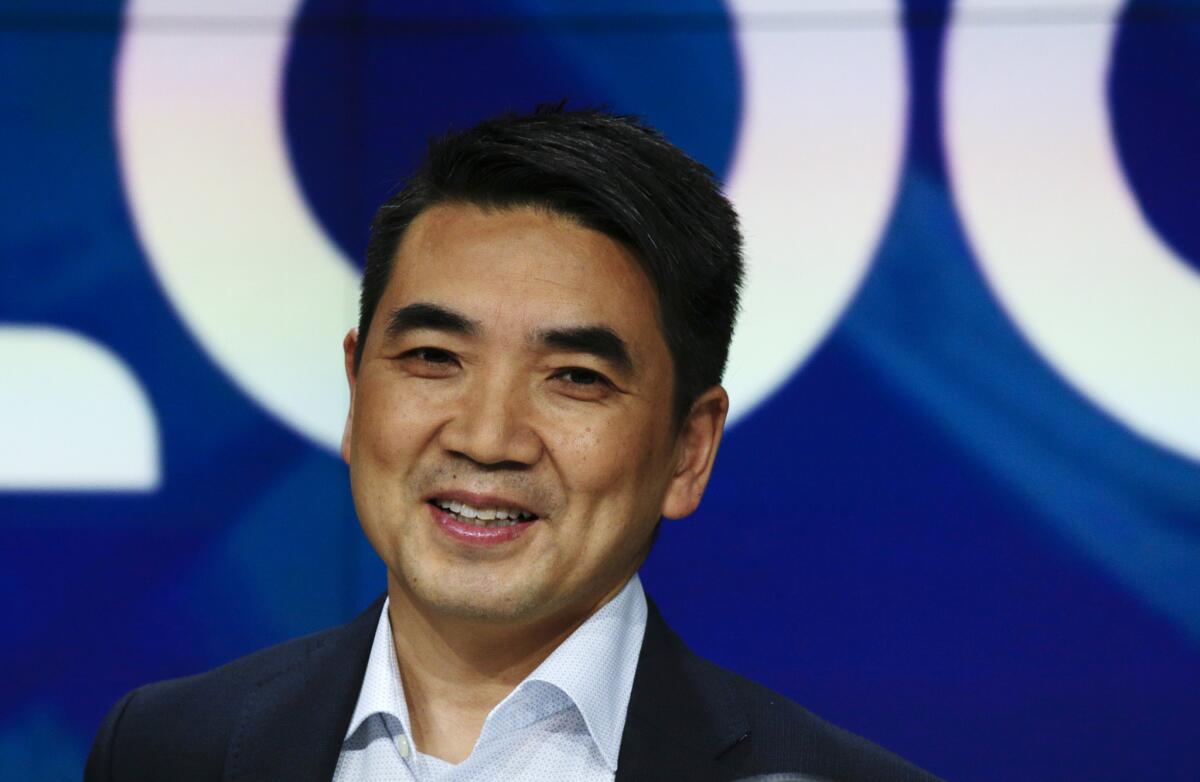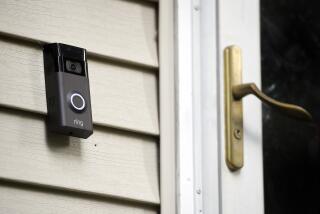Zoom’s pledge to work with law enforcement spurs online blowback

- Share via
Zoom Chief Executive Eric Yuan’s comments that the software company would work with law enforcement by not offering the strongest encryption for free calls using the popular videoconferencing service hit a nerve with some users, drawing criticism amid nationwide protests about the role of police in the U.S.
Yuan, on a conference call Tuesday, said Zoom Video Communications Inc.’s efforts to provide the highest standard of digital security, called end-to-end encryption, would go to paying customers rather than the millions of people who use the app without charge for yoga classes, weddings, religious services and other social and business gatherings.
“Free users, for sure, we don’t want to give that because we also want to work together with the FBI, with local law enforcement, in case some people use Zoom for the bad purpose,” said Yuan, also the company founder.
The remarks struck thousands of people on social media as tone-deaf, coming as marches against police brutality have clogged many U.S. cities since George Floyd, an unarmed black man, was killed by a Minneapolis police officer who pinned his knee to Floyd’s neck in a video widely shared online.
Some Zoom users vowed to dump the service and switch to competitors. Even some paying customers said they had canceled subscriptions for the company’s app. The software maker reported soaring revenue and profit Tuesday, cementing itself as one of the key beneficiaries of the coronavirus era, when millions of people have used Zoom to remotely work, learn and keep in touch with loved ones. The stock jumped 7.6% to a record $223.87 at Wednesday’s close, and has more than tripled this year.
End-to-end encryption makes it impossible for third parties to decipher communications. Although Zoom used to claim that its video calls featured that level of security, in fact, all calls have a lower level of encryption.
Yuan sought to assuage users’ concerns Wednesday in his weekly webinar, saying that the company was striving to “do the right thing” for vulnerable groups, including children and hate-crime victims, whose abuse is sometimes broadcast through Zoom’s platform.
“We plan to provide end-to-end encryption to users for whom we can verify identity, thereby limiting harm to vulnerable groups,” he said. “I wanted to clarify that Zoom does not monitor meeting content. We do not have backdoors where participants, including Zoom employees or law enforcement, can enter meetings without being visible to others. None of this will change.”
Zoom only has the email addresses of free users and Yuan said that doesn’t provide enough information to verify people’s identities. He said the company is trying to determine how it might offer end-to-end encryption to individuals who have purchased a Zoom subscription to extend the duration of their calls. Zoom offers 40-minute meetings at no cost.
Days before his comments on working with law enforcement, Yuan publicly shared a letter he wrote to employees about the grievances that spurred the recent demonstrations, including “racism, injustice and violence.”
During his Wednesday webinar, he echoed his support for the black community.
“We will also assess how best to philanthropically contribute to support some of the external partners who are on the front lines tackling social and racial justice,” he said.
More to Read
Inside the business of entertainment
The Wide Shot brings you news, analysis and insights on everything from streaming wars to production — and what it all means for the future.
You may occasionally receive promotional content from the Los Angeles Times.









